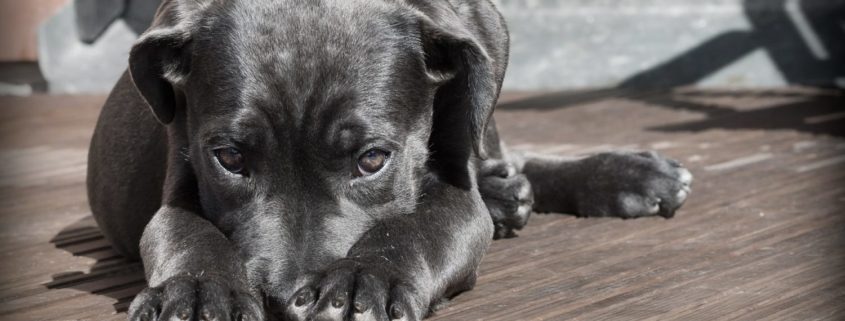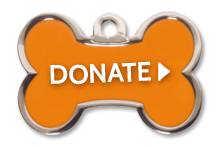Ask Crystal: Submissive Pup
Welcome to “Ask Crystal,” where you can ask your pet behavior questions! You can submit your question for Crystal at the bottom of the page!
Dear Crystal,
I have the sweetest dog in the world. She loves everyone she meets. The problem is that she urinates whenever she meets someone new. Our carpet is getting ruined by the front door! It is really embarrassing for me. What can I do to get her to stop this behavior?
Sincerely,
Submissive pup
Dear Submissive,
 This is a pretty common problem with puppies, but it can happen with adult dogs that are insecure or fearful. Offering submissive body posture and urinating is a dog’s way of showing that they are no threat and is a way to avoid confrontation. Some dogs continue this behavior in adulthood if we never really address their fear and insecurities. Submissive body posture usually looks like the dog is hunching over, their tail may be tucked, and they may roll over on their back. They avoid eye contact and often duck their head. The times when a dog may submissively urinate are when someone approaches, they are greeted, they are scolded or when there is a disturbance like arguing. If a dog urinates when greeting or playing but is not displaying submissive body postures, it is more likely to be excitement urination.
This is a pretty common problem with puppies, but it can happen with adult dogs that are insecure or fearful. Offering submissive body posture and urinating is a dog’s way of showing that they are no threat and is a way to avoid confrontation. Some dogs continue this behavior in adulthood if we never really address their fear and insecurities. Submissive body posture usually looks like the dog is hunching over, their tail may be tucked, and they may roll over on their back. They avoid eye contact and often duck their head. The times when a dog may submissively urinate are when someone approaches, they are greeted, they are scolded or when there is a disturbance like arguing. If a dog urinates when greeting or playing but is not displaying submissive body postures, it is more likely to be excitement urination.
Anytime your dog has a new behavior problem such as this, I would be remiss if I didn’t suggest that you take a trip to your dog’s veterinarian to rule out any medical causes. There are a number of medical causes for house soiling issues. That being said, here are my suggestions for working on this behavior.
There are a few different ways we could potentially manage the environment. If you know there are particular spots in the house where it happens a lot, you may want to put potty pads in those locations for now. Be sure to clean any accidents spots with an enzymatic cleaner, especially if the dog is not completely house trained. If you know someone is coming over and you would like them to meet your dog, have them meet the dog outside.
When you come home, rather than greeting the dog immediately, let them calm down for a few minutes. If your dog is in a crate, after a few minutes calmly walk over and let them out without saying anything. If your dog is loose, walk around calmly putting your things down. If you have a backyard, let the dog outside before greeting.
If you know you are going to introduce your dog to someone, give them some tips on how to interact with your dog that may help prevent the issue. As I suggested, have them meet her initially outside for now. They should avoid approaching in a way that the dog may view as confrontational or threatening. That also means not to walk quickly up to them in a straight line. They should approach slowly in an arc. When they get to the dog, have them squat down so that their side is facing the dog. Leaning over a dog can be intimidating and standing or even squatting frontally can be threatening as well. They should speak to the dog in a quiet and gentle tone. Loud booming voices can be frightening. Also, overly excited high-pitched tones may make some dogs urinate as well.
 Begin a training program using reward-based training to teach your dog cues such as sit, target or shake. If we can give them different ways to interact with people and reinforce confident body postures such as sitting up, they will likely begin to offer that behavior more often. If they know how to target or shake, you can have them offer one of those behaviors when greeting new people to redirect their focus away from the submissive posturing. Training helps insecure dogs know what to expect next which can help them relax and feel more confident. We can then begin to slowly start to introduce them to new people and situations so that they can learn to cope with new situations. We need to make sure that these new exposures are positive and happy for the dog so pay attention to their body language. Bring lots of treats and keep the exposures short such as 30 minutes to an hour.
Begin a training program using reward-based training to teach your dog cues such as sit, target or shake. If we can give them different ways to interact with people and reinforce confident body postures such as sitting up, they will likely begin to offer that behavior more often. If they know how to target or shake, you can have them offer one of those behaviors when greeting new people to redirect their focus away from the submissive posturing. Training helps insecure dogs know what to expect next which can help them relax and feel more confident. We can then begin to slowly start to introduce them to new people and situations so that they can learn to cope with new situations. We need to make sure that these new exposures are positive and happy for the dog so pay attention to their body language. Bring lots of treats and keep the exposures short such as 30 minutes to an hour.
As is the case with many behavior problems, there is a deeper cause to these behaviors that must be addressed to truly change the behavior. Your dog needs to gain confidence and skills for dealing with meeting new people. In the meantime, avoid the situations that make her submissively urinate as much as possible. Also, you want to keep a consistent routine in your daily life. Dogs can begin to relax when they have a set routine and know what to expect.
Until next time,
Crystal







